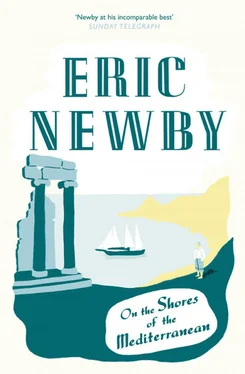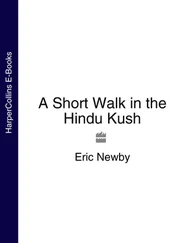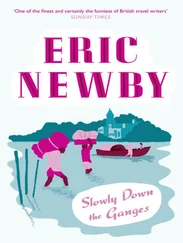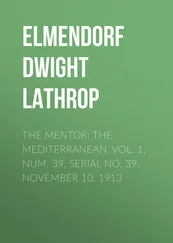Thanking our lucky stars that tonight we would sleep in a Grand Hotel instead of in the back of a van unconverted for this purpose, which was what we had now been doing on and off for months, we set off downhill through the downpour into what, insofar as we could see anything at all, resembled a crater filled with twisted rocks, narrowly missing a head-on collision with a bus that was groaning up through the hairpin bends on its way to Njeguši, loaded with what we later discovered was part of the day shift of the ‘Obod’ factory in Cetinje which made refrigerators and other electrical appliances, the ‘Košuta’ footwear factory and the ‘Galenika’ factory for processing pharmaceutical preparations, all of whom would have been a serious loss to the economy.
By the time we reached the city it was completely dark and the rain that had been clouting down had given place to a monotonous drizzle; so dark that in a dimly-lit boulevard opposite what had once been the building occupied by the Italian diplomatic mission I ran over and killed a black cat which darted across the road in front of us. However, even this melancholy incident failed to dampen our spirits completely. For we were looking forward to staying the night at the hotel, which was not just any old hotel but the Grand Hotel of Vuko Vuketič, as it used to be known, otherwise known as the Lokanda, one of the last hotels of its kind in the Balkans: the Balkans strictly speaking being the mountains in Bulgaria that extend across the country from the Yugoslav border to the Black Sea: but in the sense in which I interpret it, the one in which it is commonly used, of the Balkan Peninsula, the lands between the Adriatic and the Black Seas.
I had last stayed in it in the 1960s. I remembered it as a rather splendid cream- and yellow-coloured building with a sort of semicircular foyer that was a bit like a Victorian greenhouse. Originally built in 1864, it was the first hotel to be constructed in Cetinje and to it were sent the official and honoured guests of what was then the Montenegrin capital, which even in its heyday never had more than 5000 inhabitants. (Now it had more than 10,000 inhabitants and had several large factories producing, as well as electrical appliances, shoes, pharmaceutical products and white bauxite.) At one time the hotel housed the United States diplomatic mission. Reconstructed in 1900, and enlarged in 1929, it had two restaurants and forty bedrooms. In its remarkable foyer and in other public rooms, all rather dingy when I was last there, tall old men in national costumes with huge white moustaches, some, almost unbelievably, still with Lugers and Mausers and other weapons stuck in their cummerbunds, sat sipping away at their rakijas , their Albanian XTRA brandies and various other strong drinks for hours on end while remembering old blood feuds, an activity which in Montenegro had been raised to an art form. In fact one visitor, the author of the excellent Companion Guide to Jugoslavia , J. A. Cuddon, records one of these Montenegrin mountaineers taking out his pistol and shooting a mad dog in one of the dining rooms.
The hotel stood in what had been a windswept square when I was last there, for although it was already spring down on the Adriatic, 2100 or so feet below, up here at Cetinje, which is invariably snowed up for five months of the year from October until the end of February, there was still snow on the ground.
Now, on this really foul, wet night, we looked forward to the hot baths which could usually be had in it, sometimes to the accompaniment of alarming clanking noises from the plumbing system; to the big drinks, the scalding hot lamb soup we planned on ordering, and the great gobbets of Montenegrin pork, all brought to the table by ancient servitors; and after that to retiring to bed in one of the large and shabby but clean bedrooms. All things I remembered about the hotel with pleasure from my previous visit and of which I had spoken enthusiastically and perhaps too frequently to my fellow traveller. I could even remember the way to it, through little streets lined with lime and black locust trees, the latter a form of acacia.
By the time we reached the square in the centre of the town in which the hotel stood a thick mist had descended on it and as it was ill-lit I got down and set off on foot to look for it, leaving Wanda in the vehicle.
There, at the southern end of the square in which I remembered it as standing, I was confronted with what looked like an enormous pancake but on closer inspection turned out to be a mound of yellowish rubble. There was no sign of the hotel.
‘Excuse me,’ I said to a passer-by who had halted, curious at my interest in a heap of rubble, speaking in Italian, which sometimes serves in these parts of the world. ‘Do you happen to speak Italian?’
‘Yes,’ he said.
‘Can you please tell me the way to the Grand Hotel?’
‘Grand Hotel,’ he said. ‘That is the Grand Hotel,’ pointing at the mound of bricks and plaster.
‘But what happened?’ I asked.
‘It was the earthquake,’ he said. ‘The great earthquake of 1979. It destroyed not only the Grand Hotel. It also damaged and destroyed a large part of the city.’
‘Is there another hotel?’ I asked him, remembering that back in the sixties although the Grand Hotel had been the only one of any consequence in Cetinje, there had been some talk of another hotel, although whether it was built or about to be built I could no longer recall.
‘No,’ he said, ‘there is no other hotel. The Grand Hotel was the only one. Tourists are no longer allowed to stay in the town. In fact there is no longer even a Tourist Office.’
I told Wanda. At first she thought it was funny about the hotel, especially as there had been no loss of life when it collapsed, although there had been elsewhere in the city. Then when she realized that it meant another night in the van and, if the police found us, probably a long drive all the way back to the coast at Budva, where the nearest hotels and camp sites were, her vocabulary was immense.
In spite of the drizzle and the fog it was the hour of the passeggiata in the main street, which although many of its buildings had been badly damaged was either being rebuilt or had already been built in their original, old-fashioned form.
Young, tall, dark and incredibly handsome men, moustache-less and pistol-less, and equally beautiful girls wearing jeans and as upright as if they had been brought up to carry pots and heavy weights on their heads, as they probably had, walked up and down in little bands past the lighted shop fronts of the pleasant, pale-coloured buildings I remembered, talking animatedly, smoking cigarettes like chimneys and eyeing one another. Apart from the two of us there was not a tourist in sight and the Tourist Office, as my informant had already told me, was closed, with a notice in the window to that effect.
We dined well on the sort of huge pieces of pork we would have been offered at the Grand Hotel if only it had remained standing, quantities of bread – there were no vegetables of any kind on offer – a delicious pastry stuffed with figs, a sort of baklava, but softer than the Greek variety, and drank copiously of a robust red wine of the region called Vranač Plavka in an effort to banish the thought of another night in the open, in a restaurant which resembled a brick-lined bier-keller , except that it was on the ground floor. The waiters, who were all well over six feet tall, wore white shirts and black trousers and black waistcoats. Male guests drank oceans of beer straight out of the bottles, spurning glasses; and old men of the sort I remembered with moustaches like racing bicycle handlebars kissed one another before settling down, as I had remembered them doing, to speak nostalgically, according to Wanda who could understand some of what they said, of what had been until quite recently an almost unbelievably violent past.
Читать дальше












